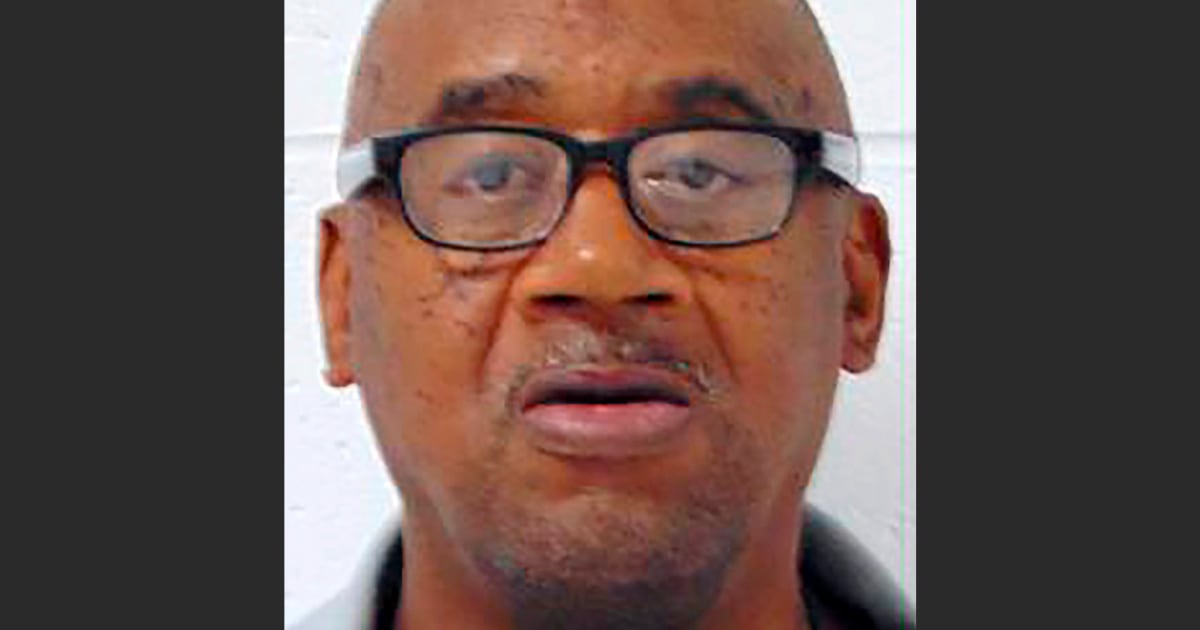
Anti-death penalty advocates — joined by Pope Francis, two members of Congress and a former governor — continued to speak out hours ahead of Tuesday’s planned execution of Missouri death row inmate Ernest Johnson, whose attorney argues killing the man who has an intellectual disability would violate the Constitution.
Johnson, who was convicted in the murders of three convenience store employees almost three decades ago, was denied clemency Monday from Gov. Mike Parson, which means only a last-minute intervention from the U.S. Supreme Court would spare him.
In another filing to the high court Tuesday, Johnson’s legal team reiterated IQ tests have indicated he has the intellectual capacity of a child, and wrote that there would be “no tangible harm” if his execution was delayed while questions over whether lower courts had “constitutionally considered” his disability are further explored.
“This Court has said states simply cannot execute the intellectually disabled,” Johnson’s attorneys wrote, referring to a 2002 Supreme Court ruling.
Johnson, 61, is scheduled to die by lethal injection at 6 p.m. CT at a state prison in Bonne Terre. It will be the first execution by Missouri prison officials since May 2020, as the pandemic put a hold on states’ death chamber operations before Texas jump-started the practice this year.
Among Johnson’s supporters are Democratic U.S. Reps. Cori Bush and Emanuel Cleaver, who urged Parson, a Republican, to reconsider his position.
Bush, a racial justice activist, has also noted the racial disparities that the prison system and death penalty have had on Black and Latino men, and believes that executing Johnson, who is Black, doesn’t address the systemic issues.
“Time is running out,” Bush tweeted.
Francis last week expressed his support for Johnson, according to a letter from Archbishop Christophe Pierre, the Vatican’s ambassador to the United States, in which he says the pontiff urged Parson to grant the inmate “some appropriate form of clemency.”
Francis declined to weigh in on the “circumstances of the crime,” but rather highlighted a larger moral choice that must be considered, according to the letter.
“His Holiness wishes to place before you the simple fact of Mr. Johnson’s humanity and the sacredness of all human life,” Pierre wrote.
Parson said this week that he remains unswayed by those seeking to halt the execution, and that Johnson is competent to be put to death, noting that the courts over the years, including Missouri’s highest court, have rejected his appeals.
“The state is prepared to deliver justice and carry out the lawful sentence Mr. Johnson received in accordance with the Missouri Supreme Court’s order,” he said in a statement.
Johnson has also asked to be executed by firing squad, which the Missouri Supreme Court denied in August.
Last May, a majority of the U.S. Supreme Court refused to take up Johnson’s case after his attorney argued that brain damage puts him at risk of severe and painful seizures if he’s executed by lethal injection.
Attorney Jeremy Weis said Johnson was born with fetal alcohol syndrome and also lost one-fifth of his brain tissue with the removal of a benign tumor in 2008. That brain defect, which left a small hole in his skull, scar tissue and a blank space where the tumor was removed, could inflict further pain, he added.
Missouri Attorney General Eric Schmitt, a Republican, wrote in a response Monday to Johnson’s stay of execution request that what he was convicted of doing in 1994 belies his claims of an intellectual disability.
“The facts of the offense plainly reflect the offender’s ability to plan, strategize, calculate, and scheme effectively,” the state wrote to the high court.
Prosecutors said Johnson used a claw hammer to fatally bludgeon a manager, Mary Bratcher, 46, and employees Mabel Scruggs, 57, and Fred Jones, 58, during a closing-time robbery at the Casey’s General Store in Columbia on Feb. 12, 1994. He was stealing money for drugs, according to court documents.
Some of the victims’ family members have previously said they wanted to watch Johnson’s execution and were in favor of putting him to death for his actions.
“I don’t want to sound inhumane, but if there’s any pain, so be it,” Bratcher’s son, Rob, said in 2015.
Bob Holden, who was Missouri’s governor from 2001 to 2005, wrote Sunday in The Kansas City Star that while his office oversaw 20 executions, Johnson’s case is an outlier because of the questions over his intellectual capacity.
“None of this excuses what Johnson did,” he wrote. “But if our state is to be guided by the rule of law, we must temper our understandable anger with reason and compassion for the most vulnerable among us, including Ernest Johnson.”
Source: | This article originally belongs to Nbcnews.com









